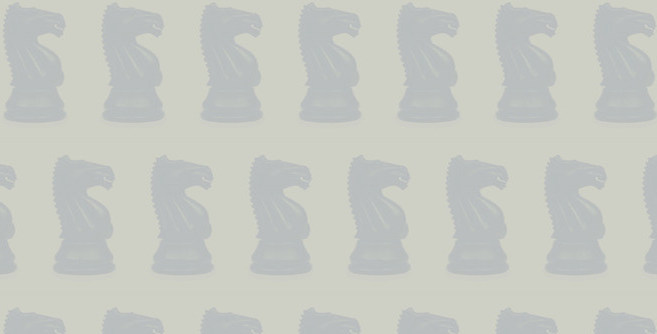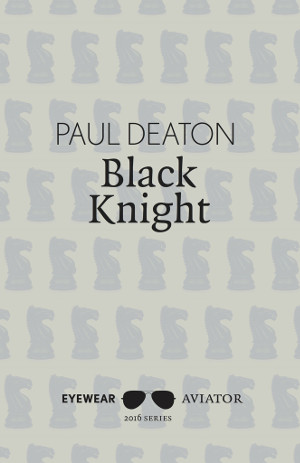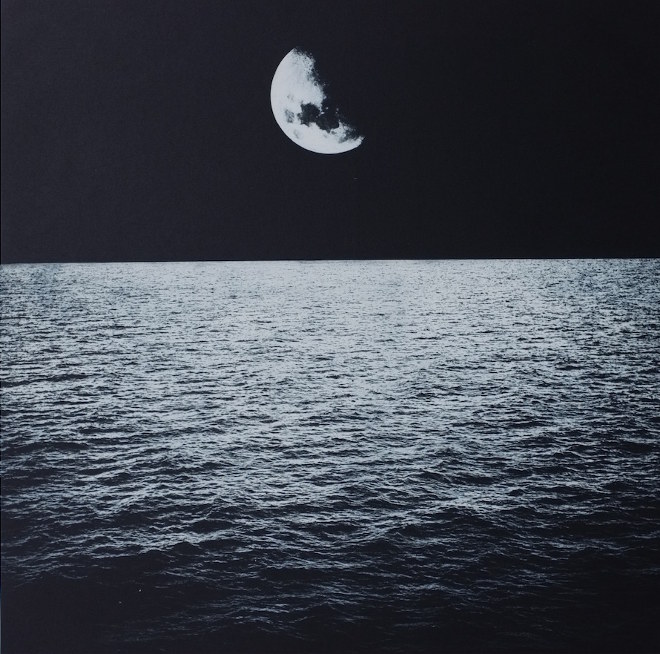
Coriolis Effect by Sarah Dncan
Poet Paul Deaton explains how he came to write Black Knight, his debut poetry pamphlet for Eyewear Publishing’s Aviator Series.
Writing for me has been an intuitive adventure. It first kicked off when I was a teenager; the need and struggle to place myself and where I was; to find something in my life to hold on to. Sounds a bit dramatic, but that was the genesis.
Why I write
Words can offer us a means to place ourselves within our own worlds, when perhaps you don’t feel well placed. Welsh poet Gwyneth Lewis calls this a “sacred place, where I allow myself to express my true feelings.”
Poetry offers this self-private room, where words are the outlet and the poems can find balance, meaning and say things that might seem ordinarily, in one’s daily life, unsayable. The words become a mirror to your life.
Talking specifically about my pamphlet Black Knight, all those previous years are in it – many, many years of clandestine writing.
It started taking real shape around eight years ago after I’d done an adult learning poetry course through Bristol University with Totnes poet Julie-ann Rowell. That was actually the point when I started to take my own writing seriously, because someone else, who I respected, took it seriously.
I’ll use that word again and I realise now, without good mirroring it’s quite easy to neglect those things we might have a talent or gift for.
The course in 2008 with Julie-ann was a moment of change. Finally I took some self-responsibility towards my writing. Sadly, I’ve been very good at self-sabotaging, a bit of an expert, which is, to put it another way, and again drawing on poet Gwyneth Lewis from her Sunbathing in the Rain, “I do have a responsibility for the maintenance of the gift.” Previous to 2008 I’d never quite respected my responsibility towards the gift. I’d let the writing flounder as much as I’d let it happen.
Black Knight really is the result of me responding to the ‘call’, and finally embracing it and actually working at it before it’s too late to do something about it.
I decided I couldn’t carry on letting it sleep lifelessly in me and then die. The poems for Black Knight come from this period when I started to graft and push beyond beginnings. It was about the writing and also a personal thing, a statement and a commitment saying this is what I’m about.
In that sense I think the pamphlet is declarative. There’s a new relationship hidden in there too amongst the scenery and also an acceptance of bloodline; a painful one with my father.
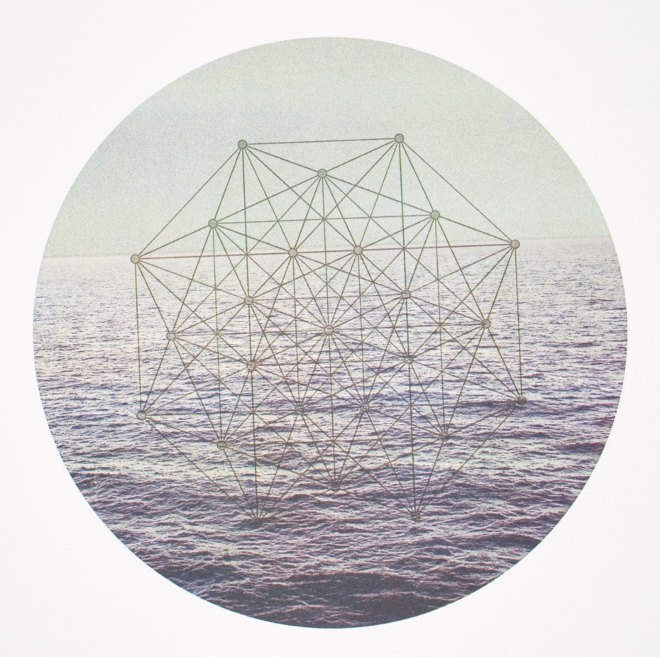
Parallex by Sarah Duncan
What I write
In terms of themes, the collection draws on two preoccupations or prisms; relationships and then my deeper sense and need for geographical topographical location which draws on a sense of place and the natural world. For me there is very much an interaction between the two, but this subject matter hasn’t been arrived at deliberately. It’s just the way it is for me.
I don’t think I’m capable of writing deliberate poems. In a good way, the poems happened inevitably, which I think is in line with what Seamus Heaney says; you’ve got to write without self-consciousness.
The themes, though, are just a reflection of a sensibility I have that comes to light sometimes, of being alive in the natural universe.
I find the natural world a huge store for correspondences and I’m curious about the interplay between the private subjective and this huge living cosmos, the universe, of which our consciousness is a part.
Like I say, it feels like a sensibility. I try and stay open to that, both of my own processes as a human being and the bigger on-going processes of sun, Earth, seasons, plant, bird life and so on happening around me and outside my back door.
In this way I try and keep the pores open and take it all in – Blake’s idea that we should “see heaven in a wild flower.” I feel whole as a human being when the two can be brought together in some way; can touch and spark, when the psyche can find those images ‘out there’ in the natural world that can name its sense of itself and the interplay ‘of the big’ that sometimes we can feel a part of.
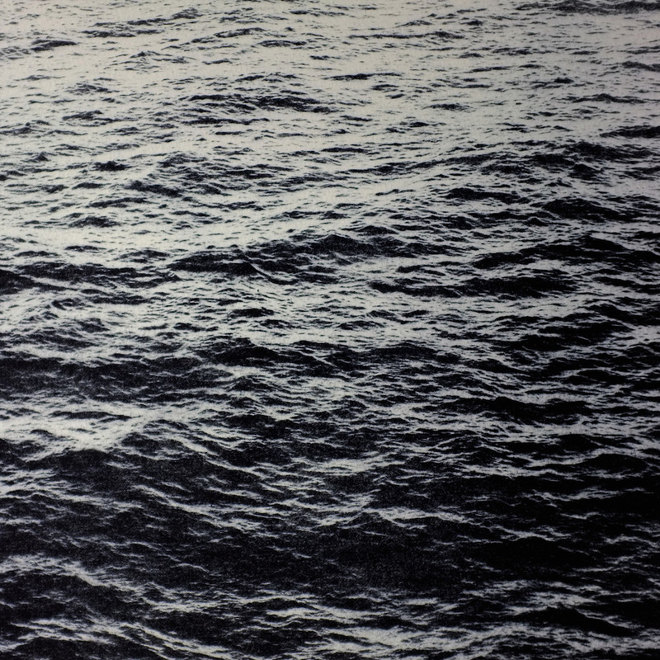
Undertow, detail by Sarah Duncan
How I write
In terms of structuring the pamphlet, it was a case of reviewing quite a strong period of new work. It was a bit like I had in my creative garden a load of fallen leaves and I just went about gathering together the ones that seemed most beautiful.
In that sense I wasn’t really writing for the pamphlet – in fact, after having got nil response after a few years’ attempts at pamphlet competitions I’d given up thinking about pamphlets – and this probably helped. I was just writing poems and trying to get them published. And thinking that maybe one day I’d go for the pamphlet or book.
But actually I wasn’t in any rush. For me, when the poems started to get published I worried less about the need for having a pamphlet. Publication felt like its own reward. So Black Knight is really just a bundle of closely connected fallen leaves pretty much off the same tree; that new relationship and the death of my father.
I’m delighted it’s here though, and delighted to be part of Eyewear and Todd Swift’s Aviator Series.
My full-length collection A Watchful Astronomy comes out with Seren next year, and will extend on from this starting point. And some of the poems for that book have moved on too, just as I have.
 About the author
About the author
Paul Deaton’s poems appear in The Spectator, PN Review, The London Magazine, The Dark Horse Magazine, Gutter Magazine and anthologies. His debut poetry pamphlet Black Knight was published by Eyewear in March 2016. A Watchful Astronomy will be published by Seren in 2017.
All images in this post (other than the pic of Paul) have been generously supplied by Sarah Duncan. Thanks Sarah! Find more of Sarah’s art at print.sarahduncan.net.
Got some writing insights to share? I’m always happy to receive feature pitches on writing genres and writing tools. Send an email to Judy(at)socketcreative.com.
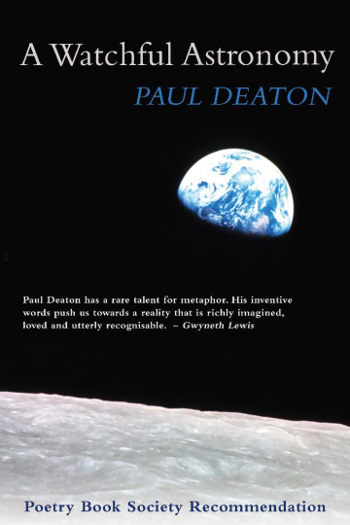 In his first full-length collection from Seren, Paul Deaton eases us into the depths of his life, awakening us to the complex constellations of families. Carried through months and years, we take in moments of sorrow, wonderment and self-depreciating humour that seems to sum up both the experience of one individual in a moment, and of the scope of human existence on Earth.
In his first full-length collection from Seren, Paul Deaton eases us into the depths of his life, awakening us to the complex constellations of families. Carried through months and years, we take in moments of sorrow, wonderment and self-depreciating humour that seems to sum up both the experience of one individual in a moment, and of the scope of human existence on Earth.




